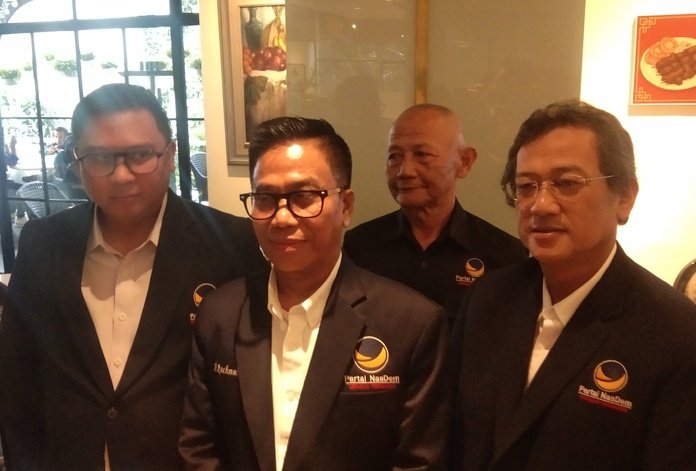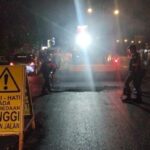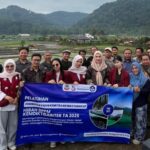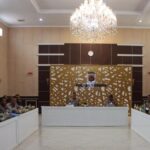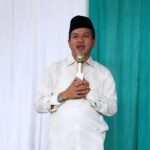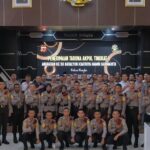The NasDem Party in Bandung has begun involving several former government officials to strengthen its structure and accelerate the strategic programs of Bandung Mayor Muhammad Farhan. This move is also part of consolidation efforts ahead of the 2029 elections and supporting Farhan’s two-term leadership target.
The chairman of NasDem’s West Java regional board emphasized that all NasDem branches across West Java are targeted to complete their formation by the end of July 2025. One that has already been officially established is the newly inaugurated Bandung City branch.
“This inauguration is not just ceremonial but a legalization and starting point for the new leadership. Now the decree exists, is official, and has been announced to the public. After this, real work must begin, especially in Bandung City,” he stated.
Furthermore, he revealed that NasDem’s West Java board aims for a significant increase in legislative seats in the 2029 elections. From the previous six seats in the Bandung City council, the party is targeting at least ten seats. Additionally, the lack of representation in the national parliament from Bandung’s electoral district is expected to be filled, with hopes of securing two seats at the provincial level.
“After this inauguration, our focus is building and maintaining the party structure until 2029. The goal isn’t just to add seats but also to regain representation in the national and provincial legislatures,” he said.
The chairman of NasDem’s Bandung City branch mentioned that the party is now collaborating with several former officials to strengthen internal capacity. These include individuals with experience in health services, public order, development planning, and regional revenue management.
“They joined because of their experience and competence in government management. This is crucial for providing strategic input to the mayor to address Bandung’s issues quickly and effectively,” he explained.
According to him, NasDem isn’t just establishing a structure but also creating a healthy discussion environment to support executive performance.
He emphasized that NasDem won’t monopolize the mayor’s authority but will actively support policy implementation for direct public benefit.
“We’ve been instructed by the central board not to co-opt but to provide maximum assistance for optimal mayoral performance. Bandung has many issues, so the party must help, not burden,” he stressed.
One reason for NasDem’s full support for Farhan’s two-term goal is the belief that many programs cannot be completed in just one term.
“Mr. Farhan needs two terms because Bandung’s problems are highly complex. Leadership continuity is essential,” he clarified.
Bandung Mayor Muhammad Farhan responded to this support by reaffirming his focus on completing his first-term duties. He stated that public criticism serves as evaluation material rather than something to avoid.
“Criticism is important. If regional leaders only thrive on praise, they’ll eventually lose touch with reality. Criticism is democracy’s vitamin,” Farhan said.
Farhan acknowledged that many consider his performance not yet visible. However, he explained that his administration’s first four months focused on program foundations rather than showcasing major projects.
“Regarding public transport, we conducted studies before launching the smart minibus program. For waste management, we first analyzed the system before distributing waste processors. Everything is research-based,” Farhan explained.
Concerning the debated seven-year term proposal still under constitutional court review, Farhan chose not to speculate. He fully respects the legal process while continuing governance as usual.
“Certainly, I’m focused on working first. Whether two terms or seven years depends on constitutional decisions. But I agree with NasDem’s central board that the court’s ruling may violate the constitution,” Farhan stated.
The branch chairman added that during the inauguration, NasDem also encouraged the Bandung mayor to continue urban development innovations. According to him, the regional budget alone isn’t enough to solve all problems.
“That’s why we push for innovation—small but impactful. It can come from anywhere, including former officials now working with us,” he concluded.

